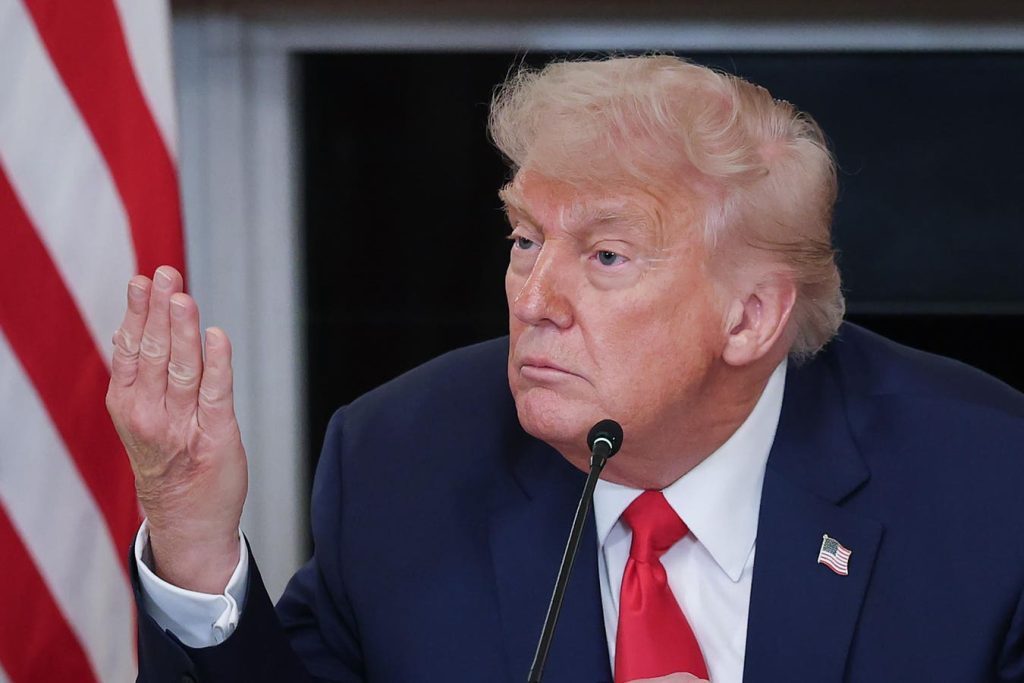Intel’s Entanglement with Chinese Surveillance Firms Raises Questions Amid US Government Investment
President Trump’s recent announcement that the U.S. government would take a 10% stake in Intel has brought unexpected scrutiny to the American tech giant’s business relationships. In a move described as unprecedented government involvement in the private tech sector, this investment has inadvertently spotlighted Intel’s ongoing partnerships with several Chinese surveillance companies that have been sanctioned by the U.S. government for human rights concerns. The juxtaposition of American public funds flowing into a company with ties to firms accused of enabling surveillance of ethnic minorities creates a complex political and ethical dilemma that challenges Intel’s stated commitment to human rights.
Intel’s website reveals surprising connections to companies like Uniview, a “titanium member partner” that was placed on a U.S. sanctions list in 2023 for allegedly enabling “high-technology surveillance targeted at the general population, Uyghurs and members of other ethnic and religious minority groups.” The relationship appears active, with Intel’s site promoting Uniview’s “video connected all-in-one machine” and “Smart City Solution” that incorporate Intel technology for image recognition and video surveillance. Perhaps more troubling are Intel’s documented partnerships with Hikvision, a major surveillance camera manufacturer that has faced multiple U.S. sanctions since 2019, and Cloudwalk, a facial recognition company designated by the U.S. Treasury as “part of the Chinese military-industrial complex” partly because its technology can “recognize individuals based on skin pigmentation.” Promotional materials on Intel’s Chinese-language site show Hikvision describing its “in-depth cooperation with Intel” while Cloudwalk’s smart cameras featuring Intel processors are highlighted for retail applications.
When confronted with these relationships, Intel did not deny the partnerships. Company spokesperson Nancy Sanchez emphasized Intel’s commitment to “adhering to all relevant laws and regulations” and following “internationally recognized frameworks such as the UN Guiding Principles.” She noted that “most Intel products are general-purpose components distributed through third parties” whose “final use” cannot always be directed, but insisted the company holds “suppliers, customers and distributors to the same responsible business standards.” This position seems at odds with Intel’s own Human Rights Principles, which explicitly state that the company “does not support or tolerate our products being used to adversely impact human rights” and commits to restricting or ceasing business with partners when aware of human rights concerns. When asked directly whether these partnerships violated those principles, Intel did not respond.
The context surrounding these relationships is troubling. Uniview has been documented as pioneering “ethnicity detection” software claiming to identify people of Uyghur descent, and helped write standards for race-based surveillance alongside other sanctioned companies. It maintains direct partnerships with Chinese police forces for “smart prison,” “smart police,” and “smart traffic” systems. Hikvision has faced escalating U.S. sanctions since 2019 for alleged complicity in Uyghur repression, including a 2022 FCC ban on its equipment that was recently upheld by a U.S. appeals court. Canada has even ordered Hikvision to cease operations entirely on national security grounds. As Dakota Cary, a China-focused security consultant, bluntly stated: “With Uniview on an entity list, they should really stop working with that company.” The timing of these revelations is particularly awkward, as they emerge shortly after President Trump called for Intel CEO Lip-Bu Tan’s resignation over alleged investments in companies with Chinese military ties—before subsequently deciding the government should invest in Intel.
This controversy unfolds against a backdrop of Intel’s changing relationship with China, which was its largest market in 2023. Chinese regulators have since issued guidance to phase out Intel processors in government systems, though local governments continue using them while gradually reducing dependence on foreign technology. Intel, once the dominant force in chip manufacturing, has struggled in recent years against competitors like Nvidia and AMD, making government support through Chips Act funds—now partially converted to equity—increasingly important to its strategy. With 76% of Intel’s sales occurring outside the U.S., the company walks a precarious line between maintaining access to global markets and adhering to U.S. policy objectives, particularly regarding China.
The implications of this revelation extend beyond Intel to the broader question of how American technology companies navigate international business relationships in an era of increased geopolitical tension. Intel’s own SEC filing acknowledges that government investment could cause “adverse reactions” from various stakeholders, including foreign governments. The case highlights the challenge of reconciling profit motives with ethical considerations and regulatory compliance across different jurisdictions. As the U.S. government becomes a significant stakeholder in Intel, questions arise about whether public investment will influence the company’s international partnerships and how it balances commercial interests with human rights concerns. This situation serves as a cautionary tale about the complexities of globalized technology supply chains in an increasingly fragmented world order, where corporate decisions can have significant diplomatic and ethical implications.






